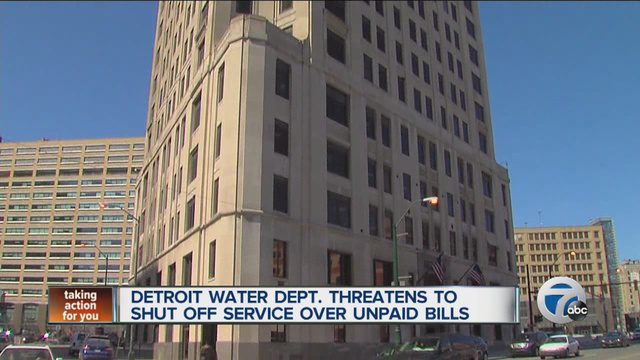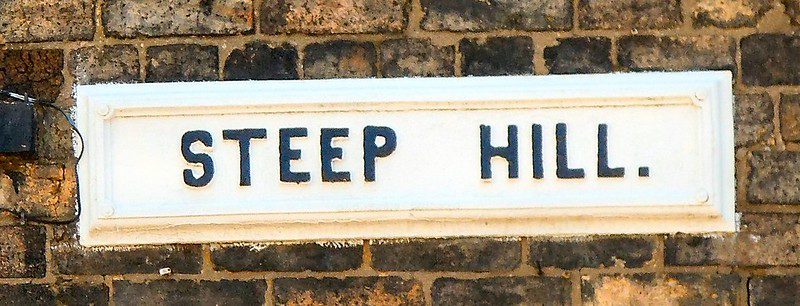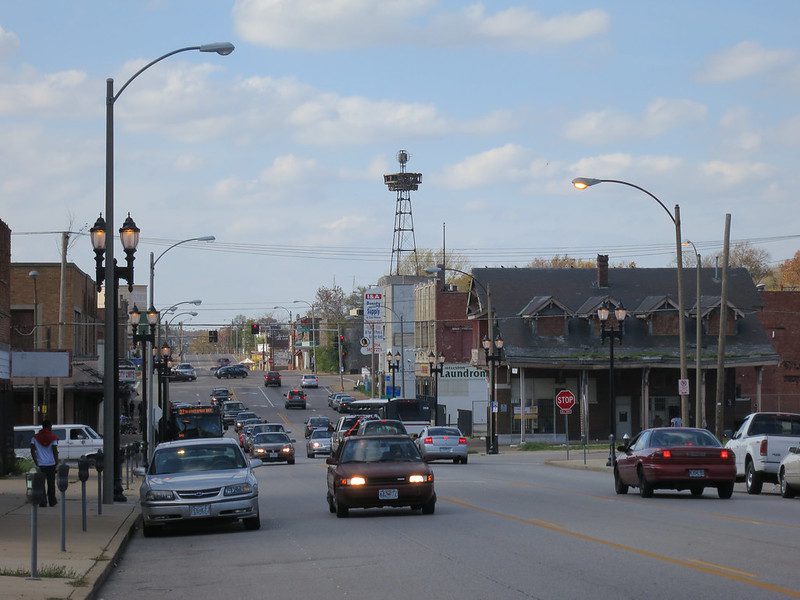Even the much beleagured CEO of Nestle, who has been accused of trying to privatize the water resources of poor communities for the benefit of its bottled-water profits, officially says that at least a basic amount of water is a human right. He told the Guardian in 2013:
“This human right is the five litres of water we need for our daily hydration and the 25 litres we need for minimum hygiene. . . This amount of water is the primary responsibility of every government to make available to every citizen of this world.”
It's not the most inspiring statement: everyone should have the bare minimum and we can profit off the rest?
And yet, in Detroit today, he'd sound like a radical.
See, Detroit, as you may have heard, has commenced shutting off water to 150,000 households who are behind in paying their water bill (at a rate of 3,000 a week)—sometimes as little as two months or $150 behind, sometimes already on payment plans. It has also raised water rates to more than twice the national average.
Activists argue that there is a massive irony behind the Detroit Water Board's claim that it must do this to keep itself from sliding further into debt:
It's not focusing on large corporate accounts who are behind to the tune of tens or even hundreds of thousands of dollars. (There is some dispute as to whether they are being cut off at all it seems.) ThinkProgress notes:
If the water shutoffs were aimed at making the department look like a shinier prize in bankruptcy negotiations, they would likely be targeted at corporate clients directly, for the same reason that Depression-era gangsters robbed banks: that’s where the money is. . . Non-residential clients account for almost half of what DWSD is owed despite being less than 7 percent of total delinquencies.
It would clearly be both more efficient (so many fewer accounts) and more humane to focus shut-offs on commercial clients.
But apparently this is the one time when they actually get treated like everyone else—when it doesn't make sense to.
Meanwhile, the morality play we have going on about debt continues: For a corporation to default on a debt is “strategic.” But for an individual, especially a low-income one, not paying a debt becomes a moral failing, and sometimes possibly a matter of freedom or imprisonment, life and death.
No wonder people are calling for UN intervention in Detroit, while others organize direct action to prevent the shut offs.
It's hard not to hear the echoes of planned shrinkage in the Detroit story as well. In the 1970s it was fire services that were withheld from the South Bronx, as building after building was burned to the ground as arson for profit. In sprawling Detroit, they've been struggling with the same challenge as in many (naturally) shrinking cities—it would be vastly more efficiently to just take certain sparsely populated neighborhoods off line all together, saving on infrastructure maintenance, police, etc.
Could shutting off water to the struggling residents hanging on amidst the Detroit prairies, which has got to be an expensive undertaking itself, forcably displace enough of them to let that happen? Could that be a conscious or subconscious intention among any of the actors here?
If so, it would be a shame. It would be another shameful chapter in our history of urban development, along with planned shrinkage and urban renewal and redlining, to allow people to go without water for small debts in order to clear land to save money and eventually for others to profit from, without any benefit going to those who had stuck it out through the bad times.
There must be other ways to reimagine these areas. Detroit, and its water board, are certainly facing a real fiscal crisis, but that's not these residents' fault. Compromising the health and dignity and economic stability of half your population for a short term economic gain is not the way Detroit is going to bounce back, any more than starving their people in order to export all their food helped the third world countries burdened by high IMF debt.
If Detroit can't do better on its own, Michigan or the federal government should step in—Michigan is already pulling the strings through an emergency financial manager. Perhaps it's time the state adjusted his job description to be a little less focused on short-term finances only, and more on the city's long-term health and basic humanity.






Comments